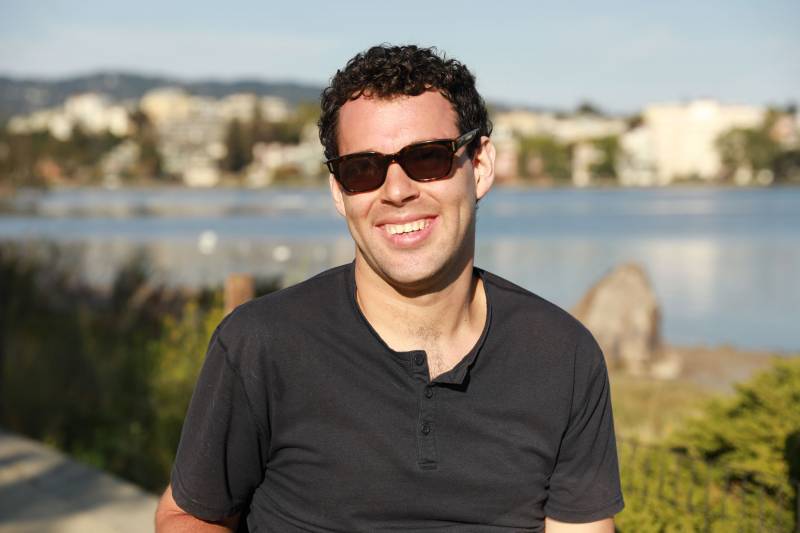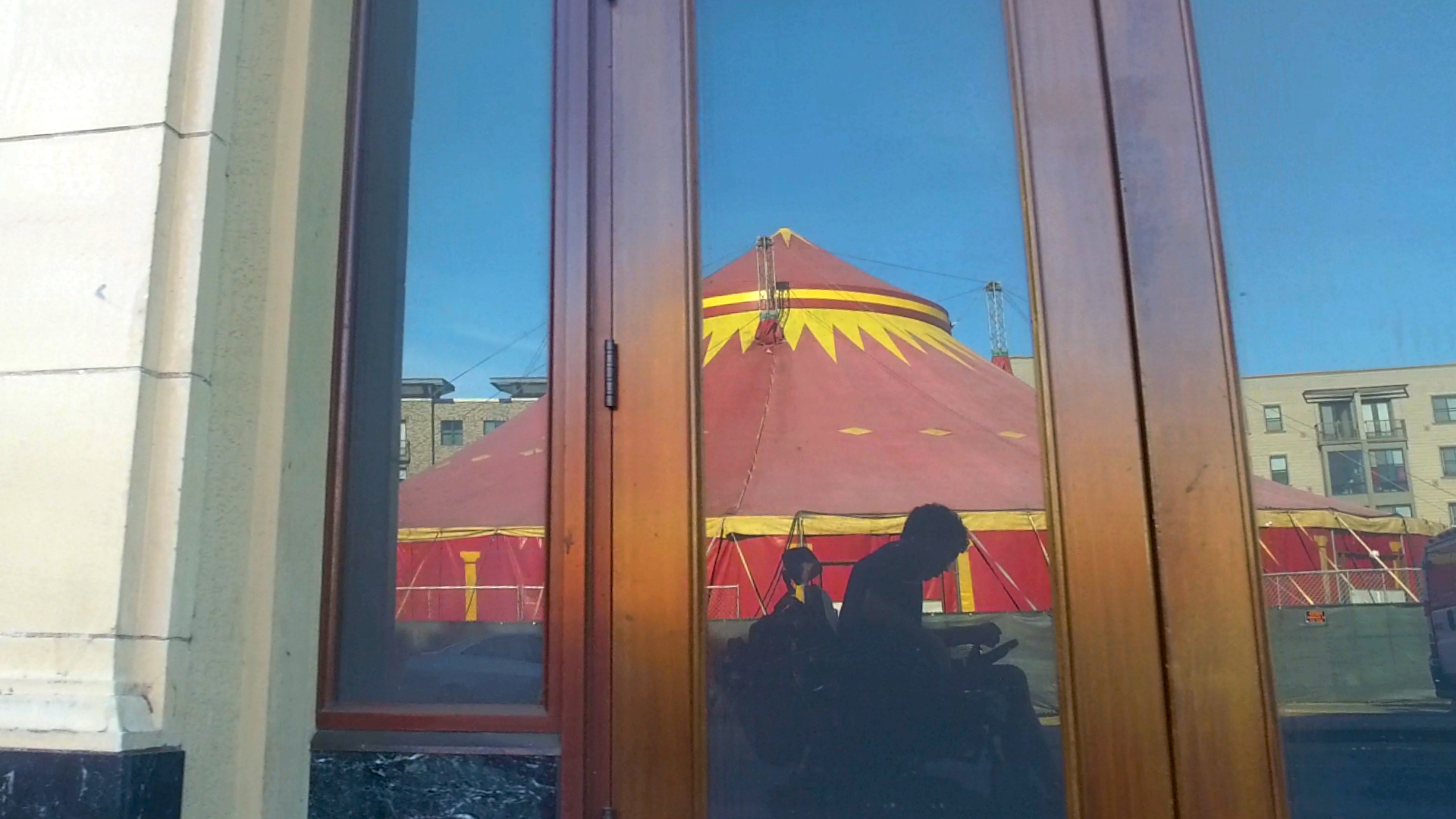2020’s Sundance edition featured local filmmakers Nicole Newnham and Jim Lebrecht’s Crip Camp: A Disability Revolution (on Netflix, and highly recommended), which integrated personal experience with a landmark 1970s civil rights campaign. In contrast, I Didn’t See You There is primarily experiential and occasionally experimental, largely eschewing information and history in favor of confronting mainstream assumptions and attitudes in both explicit and implicit ways.
“I hope it implicates the viewer,” Davenport declares, though he needn’t worry. Take the seemingly prosaic scene where he does a 360 on an Oakland street corner, filming the panorama. A passerby asks if Davenport needs help (or possibly directions) and is politely turned down. Davenport’s independence has been well-established by this point, but I confess that I identified with what I perceived as a helpful stranger.
The filmmaker, however, says that he viewed the would-be Good Samaritan as “hyperaware and a nuisance.” “Independence is kind of an overused charm that I think is used for cosmetic purposes rather than the wellbeing of disabled people,” Davenport says. “Your action is spurred by the notion that I am helpless.”
Davenport takes on another not-quite-extinct attitude in I Didn’t See You There, that people with disabilities are freaks. His musings are inspired by the appearance of a circus tent in his Oakland neighborhood, and the kind of acts once presented in such places of “amusement” by the likes of P.T. Barnum. The filmmaker and “the greatest showman” were both born in Bethel, Connecticut, which is anything but a point of pride for Davenport.
The accomplishment of I Didn’t See You There lies in how effectively Davenport and editor Todd Chandler interweave the filmmaker’s personal life with his social-issue concerns, to the point where any distinction evaporates.



